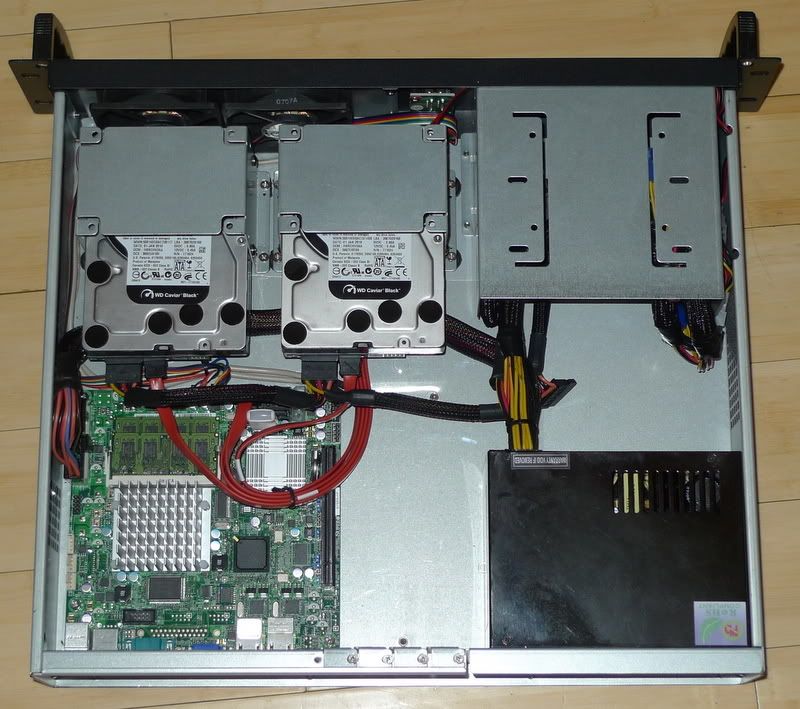
Ardrahan
-
Posts
4 -
Joined
-
Last visited
Content Type
Profiles
Forums
Downloads
Store
Gallery
Bug Reports
Documentation
Landing
Posts posted by Ardrahan
-
-
Thanks for the quick reply itimpi. I'm aware of lack of trim, but haven't had any issues over 5 years on my all-SSD array, probably due to my relatively benign usage patterns.
Lack of ability to replace my failing data SSD, however, is quite problematic. I have an offline backup unraid instance so I could rebuild if needed. But I would much prefer a drop in replacement capability for my failed data SSDs. Any way for me to get the (perhaps slightly less efficient) start sector behavior back somehow to handle this scenario, unraid devs?
-
I'm trying to replace my older 2T Samsung SSDs after 5 years of use due to smart errors. I added a new 2T WD into an extra bay (sdc) and have had it available as an unassigned drive.
However, when I try to assign it to replace one of the Samsung SSDs (sdd) I get a "disk too small" error. (roughly following these steps without the physical drive replacement: https://wiki.unraid.net/Replacing_a_Data_Drive)
I've searched the forums a bit but only found references to enabled HPA, which does not seem to be the case for me (eg this thread:
root@Tower:~# hdparm -N /dev/sdc /dev/sdc: max sectors = 3907029168/3907029168, ACCESSIBLE MAX ADDRESS disabled root@Tower:~# hdparm -N /dev/sdd /dev/sdd: max sectors = 3907029168/3907029168, HPA is disabled
Before I tried this I precleared the drive. I also tried clearing it and formatting it, but none of those steps helped.Unraid 6.10.3
Any ideas?
Thanks,
Chris
-
My first unraid server. I was aiming to build a compact rack-mount low power consumption server. I'm really pleased with how it turned out!


2U compact server rackmount case -- seems to have space for 9 HDs if needed. It's a compact depth chassis which fits in my 20" depth rack. 80plus efficiency power supply.
http://www.newegg.com/Product/Product.aspx?Item=N82E16811192163
Intel Atom D510 Micro ITX motherboard with IPMI, 6 onboard SATA ports and onboard USB port. This mb is fantastic and I really like IPMI. Thanks for the recommendation from these forums.
http://www.supermicro.com/products/motherboard/ATOM/ICH9/X7SPA.cfm?typ=H&IPMI=Y, from wiredzone.com
RAM 2x
http://www.newegg.com/Product/Product.aspx?Item=N82E16820134546
Disks: 2x Western Digital Caviar Black 2TB
http://www.newegg.com/Product/Product.aspx?Item=N82E16822136456
Currently rebuilding parity at ~120,000kb/sec
Will try and post some power consumption numbers when I have it connected to my UPS.

Replacement disk is too small
in General Support
Posted · Edited by Ardrahan
So option A seems to be:
1. add new SSD to array as additional drive. Move all the contents from failing drive to new drive (via mv /mnt/diskX /mnt/diskY). I believe parity is maintained during this step since I'd do it with array started(?)
2. then follow this process to remove failing drive: https://wiki.unraid.net/Shrink_array#The_.22Clear_Drive_Then_Remove_Drive.22_Method
3. I also have SSD parity drive which is also 5 yrs old and may need to be replaced. If that gives me same "disk too small" error.. I wonder if I can add a new SSD as a second parity drive and remove the first? I haven't looked into this yet.
Possible option B: could I just get some 4TB SSDs and replace my 2Ts with 4Ts? Will that just work, because they'd be sufficiently large even with a new start sector? Presumably this would work both for parity and data SSDs?